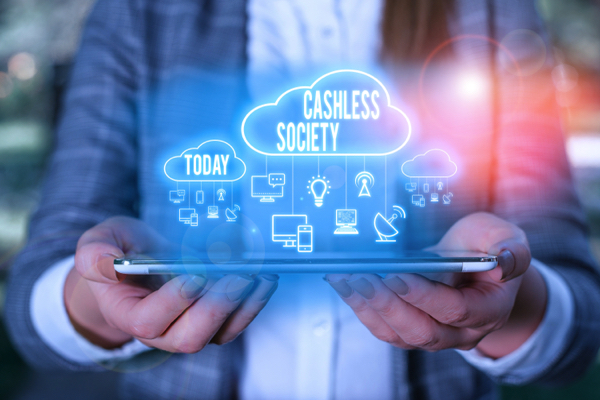
As digital payments surge globally, the quiet shift away from cash is eroding financial self-control, privacy and equity. Consumers, governments and tech giants are colliding in a system where frictionless spending fuels debt, corporate profiling and social stratification. 2024 data reveals record U.S. spending in tandem with rising debt burdens. From Beijing to London, cashlessness defines economic life, yet vulnerabilities persist. A race toward digitization has outpaced safeguards, threatening to price millions out of control over their money and privacy.
The psychology of invisible spending
Digital payments outpace human fiscal instincts. Researchers identify a “pain of paying” curbed by card and app use — where tossing a $10 note hurts more than tapping a phone. Visa reports digital shoppers spend 25–40% more at casual dining spots than cash users. TIME Magazine highlighted a 2023 study tracking Alipay adoption, finding mobile wallets drove 9.4% higher spending and 11% more transactions. “We’re bypassing hardwired restraints,” noted economist Michael Gelman.
Frictionless tech blurs mental budgeting. Retiree Margeaux Walter, for instance, spent nearly $5,000 blindly in two weeks via stored card data. “The lack of physicality,” she admitted, “made me forget the weight of money.” Psychologists term this “mental accounting decay” — where ease of payment distorts perceived wealth, leading to debt. U.S. household debt hit $17.5 trillion in late 2023, a $3.4 trillion pandemic-era spike.
Privacy costs: Digital trails and the case of China
Every tap and click builds a profile. Government and corporations now map lives via spending, shaping access to jobs, travel and credit. In China, the Social Credit System penalizes overspending on luxuries and rewards fiscal “discipline,” with 40 million citizens cut off trains or flights for poor scores.
Closer to home, U.S. retailers and banks mine transaction data for targeted ads, while regulators struggle to curtail corporate dominance. “Digital payments leave footprints traceable by everyone from Visa to hackers,” warned cyber firm Wavetec. The 2024 global IT outage — triggered by a CrowdStrike software flaw — exposed this fragility, halting digital payments and forcing U.K. shoppers to scramble for cash.
Exclusion in the race to cashlessness
Not everyone wins. U.K. data shows 12% of 2023 transactions were cash-driven, disproportionately by low-income, elderly and disabled individuals. “Cutting ATMs disempowers the most vulnerable,” said Link CEO John Howells.
In the U.S., 1 million Americans still rely on cash-only services, yet 42% of banks reduced branch counts in 2023. As digital wallets flourish — Apple Pay, Google Pay and PayPal now cover half of U.K. adults — exclusive businesses risk creating a cashless “underclass.”
Whose future is digitizing faster than you?
The cashless shift isn’t neutral. Authorities quietly dismantle safeguards: the U.S. has nix major apps to track spending, while the EU fines banks for promoting metal coins. Developers like Visa tout “velocity of money,” a metric mapping your spending urgency. The push mirrors 1960s credit card expansions, which likewise normalized debt — this time with centralized control.
The final tab which we all foot
The allure of convenience obscures a stark truth: cashlessness demands a toll on autonomy. For conservatives, the stakes are existential, particularly in arenas like gun rights, where cash transactions preserve anonymity and constitutional freedoms. Will innovation curb self-reliance or empower individuals? After the 2024 outage, a fragmented digital infrastructure exposed cash’s unique resilience — its immunity to systemic hacks and its role as the sole “unhackable” refuge in crises. While digital systems promise security through encryption, breaches at institutional levels — banks or payment platforms — can still compromise user data, which cash circumvents entirely at the individual level.
As markets face a looming reckoning driven by inflation and instability, the debate transcends technical fixes. The question isn’t just how to rebuild — what do we protect? Hyper-targeted taxation, loss of financial privacy and reliance on centralized tracking erode personal sovereignty. Cash’s anonymity allows barter, fosters informal economies and guards against inflationary tools enforced by central banks. Yet its preservation battles convenience — a siren song luring us toward surveillance capitalism — versus control over our dollars, the bedrock of true economic agency.
Sources for this article include:
TheExpose.com
Time.com
FT.com
Source link

